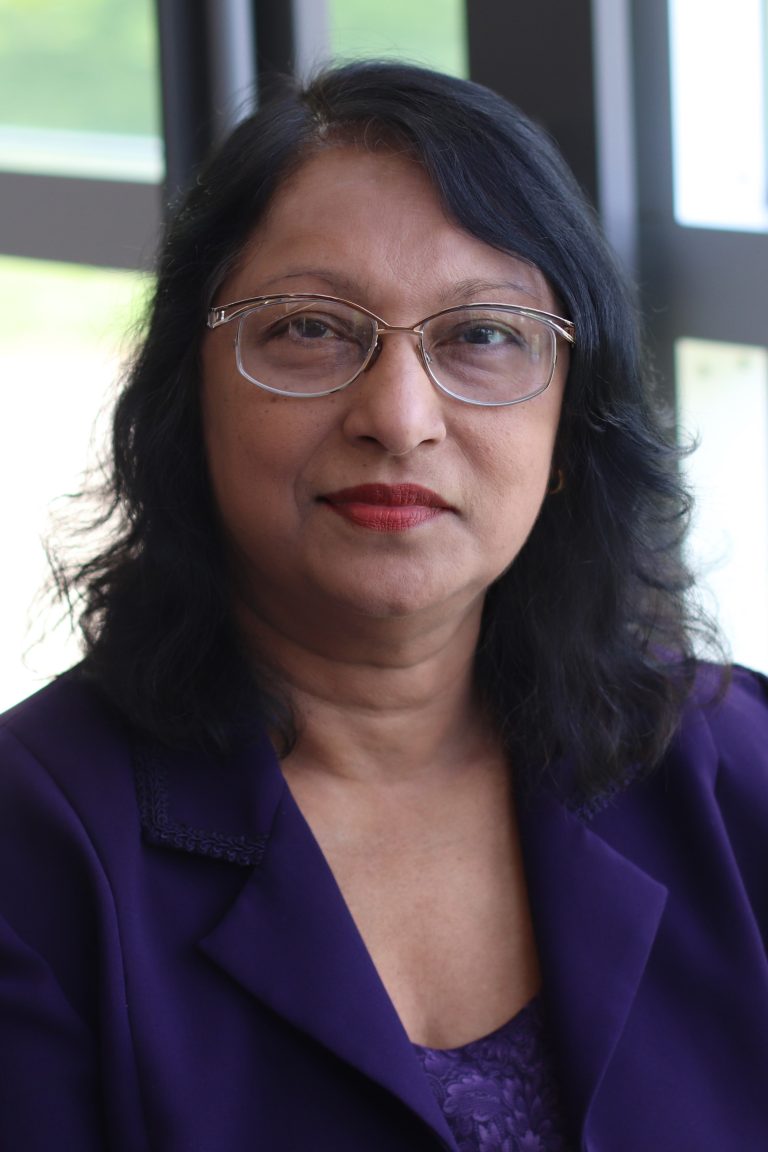
A remotely recorded podcast with Professor Sumudu Atapattu (Law Repository), Director of the Global Legal Studies Center at the University of Wisconsin Law School.
The interview was conducted on December 15, 2025 | 35:29 minutes; published February 20, 2026. Transcript file (PDF).
Link to the Podcast: Soundcloud | Apple Podcast
On this episode of the podcast, Sumudu Atapattu discusses a wide range of topics that she has examined in her prolific scholarship, focusing on the tension between human rights, climate change, and environmental law. Prof. Atapattu discusses her early days at an NGO in Sri Lanka and how her experience there led to becoming a leading scholar on climate migration, small island states, and the rights of vulnerable populations. The discussion touches on topics like the Kiribati refugee case, youth climate litigation in Montana and Wisconsin, the role of UN human rights bodies, and the need for new legal frameworks around climate refugees. Prof. Atapattu provides numerous real-world stories and concrete examples that make complex international law urgent and understandable.
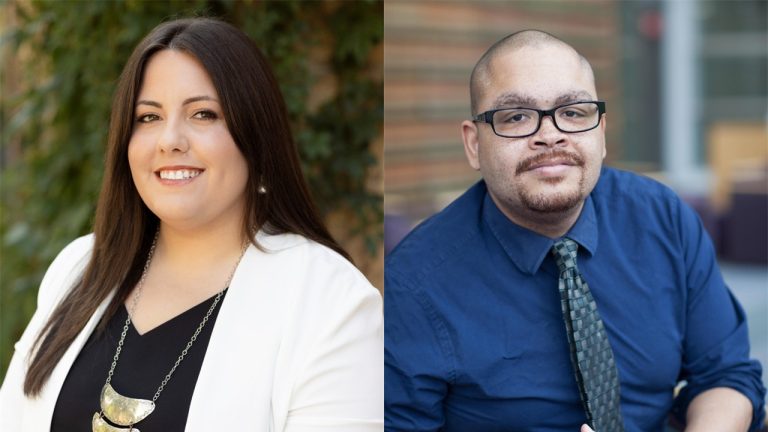
A remotely recorded podcast with Professor Torey Dolan (Law Repository) and Professor Steve Wright (Law Repository) at the University of Wisconsin Law School.
The interview was conducted on January 20, 2026 | 36:07 minutes; published February 13, 2026. Transcript file (PDF).
Link to the Podcast: Soundcloud | Apple Podcast
In a special edition of the Wisconsin Law In Action podcast, Professors Dolan and Wright both join us to discuss how the Voting Rights Act has been challenged and debated at the Supreme Court in recent years. Specifically, the discussion centers on Louisiana v. Callais, a case that was recently argued before the court and focuses on Section 2 of the Voting Rights Act. Prof. Dolan, who submitted an amicus brief in the case on behalf of the Navajo Nation, discusses the potential impact that the case may have on voting rights for not only voters in Louisiana, but across the United States and highlights other cases that may impact voting rights. Prof. Wright, drawing on his experience working for the Department of Justice in bringing voting rights cases, explains adverse effects that the finding may bring about if Section Two is dismantled.
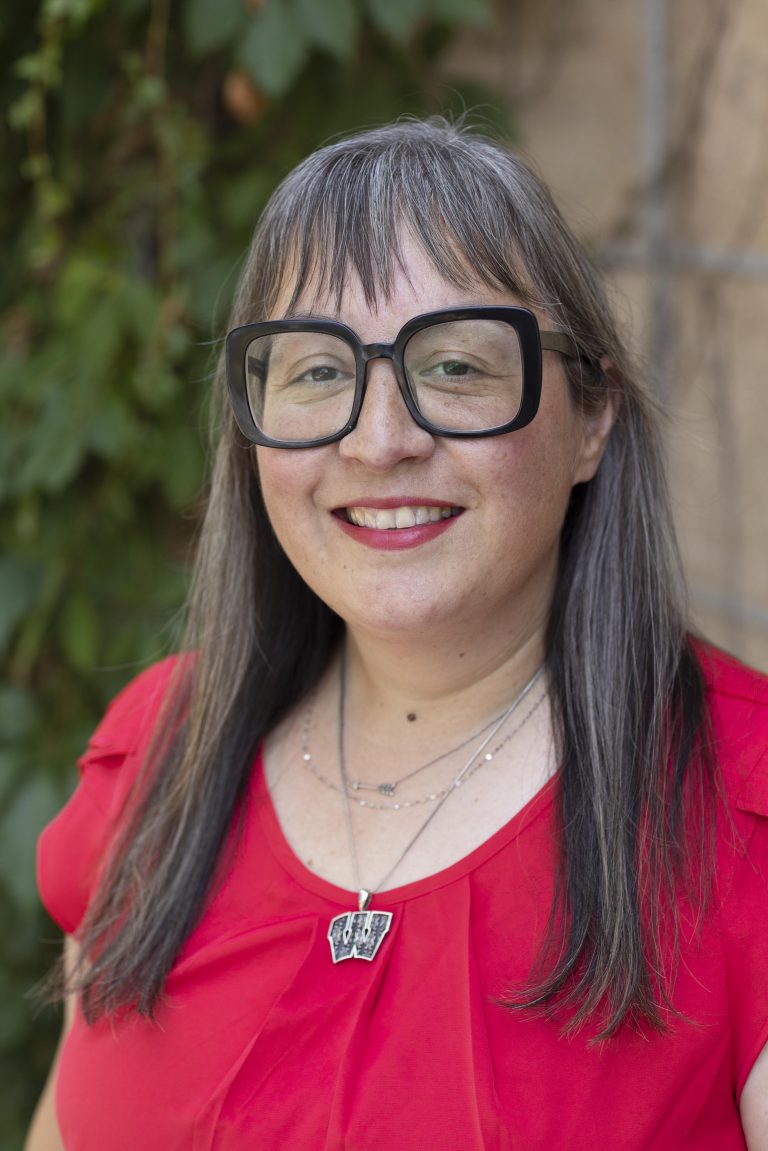
A remotely recorded podcast with Professor Amanda White Eagle (Law Repository), Director of the Great Lakes Indigenous Law Center (GLILC) at the University of Wisconsin Law School.
The interview was conducted on December 16, 2025 | 35:04 minutes; published January 30, 2026. Transcript file (PDF).
Link to the Podcast: Soundcloud | Apple Podcast
Prof. White Eagle discusses the positive impact of the GLILC as well as the Native November Symposium and the Coming Together of People’s Conference. In a wide-ranging chat, Prof. White Eagle covers how the Center reaches out and works with a variety of stakeholders in the Law School, in tribal communities, and across the Great Lakes Region to confront challenges facing these groups today and how she works to mentor students interested in tribal law. Prof. White Eagle also explains how these events and the Center itself amplify indigenous law voices and gives students, faculty, and all other attendees to “examine the threads that make up the tapestry” of tribal law. The Great Lakes Tribal Law collection discussed on the podcast can be found on the UW Law School’s website or on the Stockbridge-Munsee Tribal Law Library website.
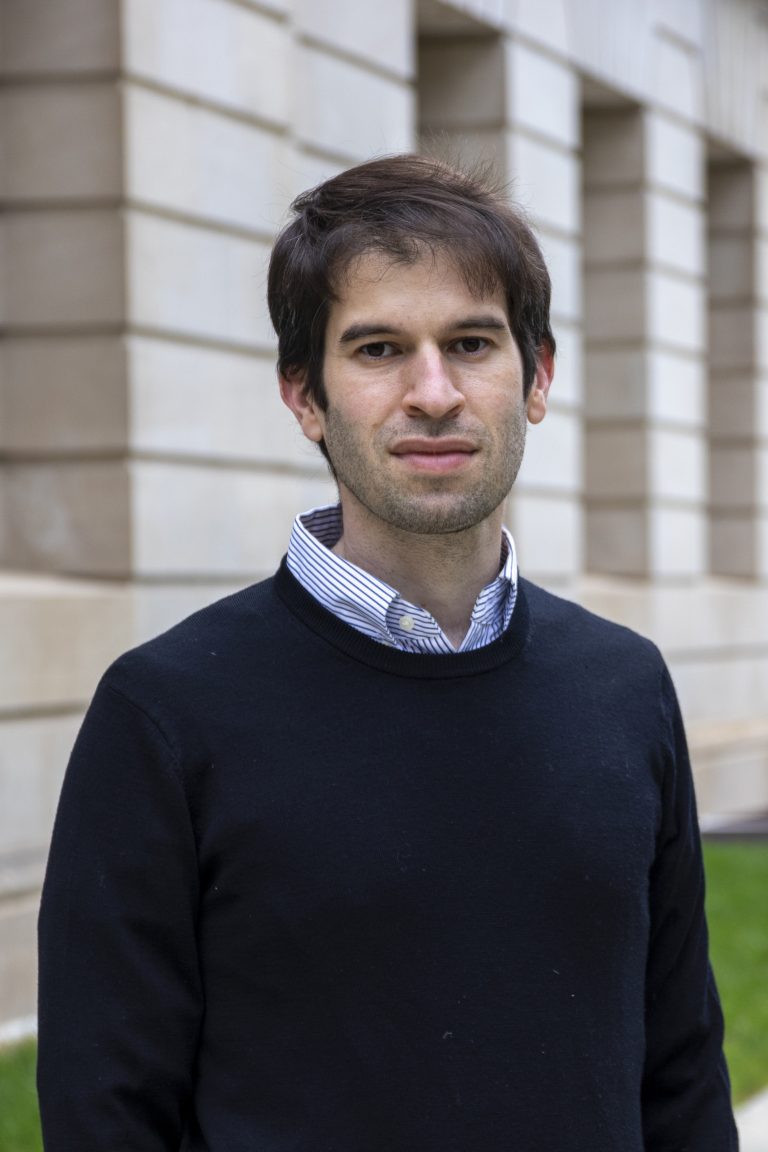
A remotely recorded podcast with Professor Joshua Braver (Law Repository), Professor of Law at the University of Wisconsin Law School.
The interview was conducted on December 5, 2025 | 37:24 minutes; published January 14, 2026. Transcript file (PDF).
Link to the Podcast: Soundcloud | Apple Podcast
Prof. Braver joins the podcast to discuss a variety of recently published books, and articles that revolve around the complicated question of disobedience, in today’s military, among citizens wishing to re-write constitutions, and in legal history. The discussion covers Prof. Braver’s recently posted SSRN paper “Disobeying Lawful But Unethical Orders in the Army”, his 2023 book “We, the Mediated People” from Oxford University Press, as well as articles posted to LawFare in early December (“Whiskey Rebellion as Precedent for Recent National Guard Deployments?”) and the Wall Street Journal (“Disobeying Military Orders is Full of Risk”), published in late November.
A common theme among these writings is the question of how military members can legally disobey orders, and when. Prof. Braver details the perils, pitfalls, and challenges that members of the military face when confronted with an order they may consider unethical. The answer is complicated and thorny and Prof. Braver thoughtfully unpacks both the obvious and subtle challenges faced by people in situations where they must make potentially life-changing decisions with far-reaching consequences.

Interview conducted on November 24, 2025 | 21:12 minutes; published December 29, 2025. Transcript file (PDF).
Link to the Podcast: Soundcloud | Apple Podcast
A remotely recorded podcast with Elizabeth Manriquez (Law Repository), Head of Reference and Scholarly Support at the University of Wisconsin Law School Library.
Elizabeth joins the podcast to discuss her newest book chapter about Bowie Kent Kuhn, the Major League Baseball Commissioner from 1969 to 1984 and licensed attorney, published in Attorneys in the Baseball Hall of Fame from Mcfarland Publishing. In the chapter, Elizabeth examines the arc of Bowie Kuhn’s career from an attorney who worked on sports cases to his ascendance to the MLB commissioner. During his time as commissioner, a number of changes and challenges arose and Elizabeth’s chapter examines how Kuhn approached these issues, as well as the controversial resumption of his legal career following his tenure at baseball commissioner. Elizabeth’s chapter highlights just one excellent example of the impact of legal-trained professionals outside the courtroom. In this case, it was on the baseball diamond.
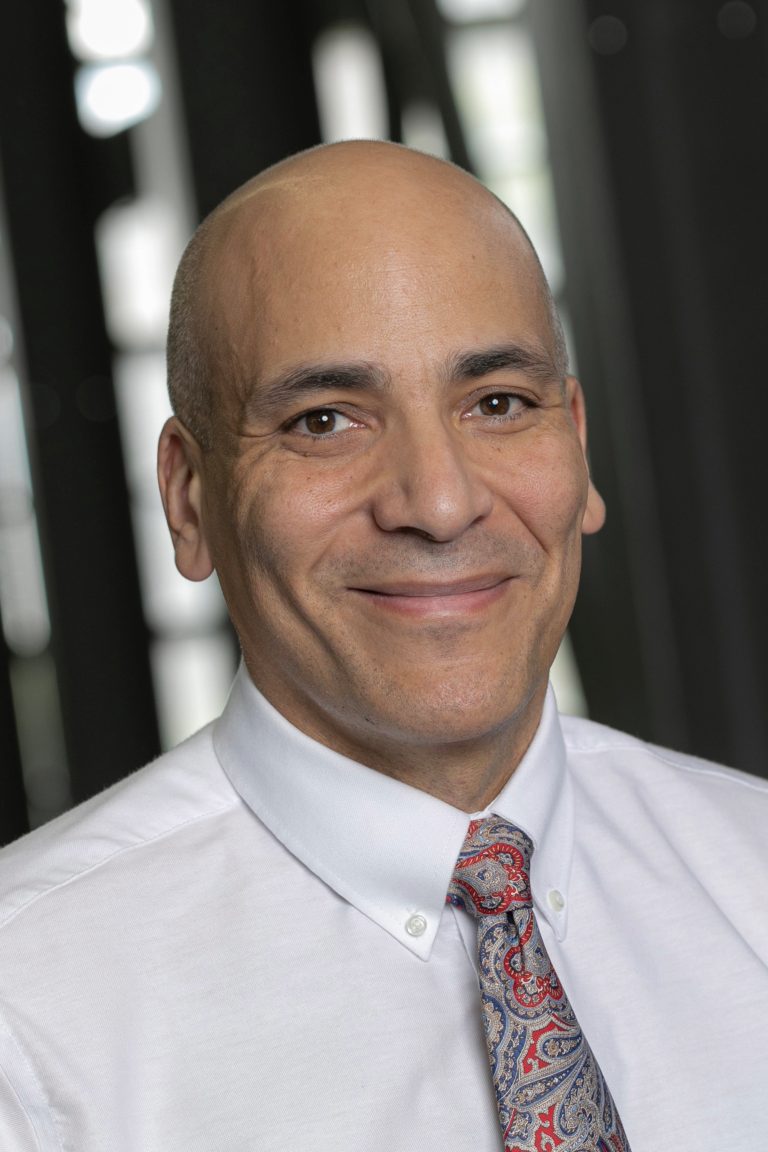
The interview was conducted on March 31, 2025. | 39:19 minutes; published June 17, 2025. Transcript file (PDF).
Link to the Podcast: Soundcloud | Apple Podcast
A remotely recorded podcast with Andrew Turner (Law Repository), Assistant Dean for Academic Enhancement and Teaching Professor at the University of Wisconsin Law School.
Dean Turner discusses his newest article, Let’s Not Be Creative: Rigid IRAC and the Hidden Power of Formalistic Legal Writing, published in the Journal of Legal Education in 2024. In the article, Dean Turner argues for the strict adherence to rigid and formulastic legal writing to better prepare law students to become more effective writers and advocates. Through the effective and thoughtful use of the traditional IRAC method, Dean Turner explains that natural cognitive tendencies that work against modern legal practice can be minimized while also ensuring a higher quality of work for law students and newly minted attorneys.
Episode 36: Steven Wright and the Constitutional Litigation, Appeals, and Sentencing Project

A remotely-recorded podcast episode with Steven Wright (Law Repository), Clinical Professor of Law at the University of Wisconsin Law School.
Professor Wright is the founder of the Constitutional Litigation, Appeals, and Sentencing Project (CLASP) and is the former co-director of the Wisconsin Innocence Project. Professor Wright discusses his clinical work with CLASP. The clinical teaching process differs from doctrinal law school classes and the newly founded CLASP clinic provides a great opportunity to discuss what the clinic does, who they work with, and the professor and student experience.
The interview was conducted on July 2, 2024. | 61:08 minutes; published August 13, 2024. Transcript file (PDF).
Link to the Podcast: Soundcloud | Apple Podcast
Episode 35: Ion Meyn and the Convict Leasing Narrative

A remotely-recorded podcast episode with Ion Meyn (SSRN; Law Repository), Assistant Professor of Law at the University of Wisconsin Law School.
Professor Meyn discusses his new article, “White-on-Black Crime: Revisiting the Convict Leasing Narrative”, recently published in the Wisconsin Law Review. This article examines the years between 1880-1915 and the growing amount of evidence that suggests criminal convictions of Black men were the result of criminal conspiracies to traffic Black victims. This human trafficking inflated the historical Black crime rate but also obscured the criminal conduct of white beneficiaries.
The interview was conducted on May 16, 2024. | 49:17 minutes; published June 24, 2024. Transcript file (PDF).
Links to the Podcast: Soundcloud | Apple Podcasts
Episode 34: Jennifer Binkley and Wisconsin Family Law

A remotely-recorded podcast episode with Jennifer Binkley (Law Repository), Associate Clinical Professor and Director of the Family Court Clinic.
Professor Binkley discusses her recently-published book, “Wisconsin Family Law with Forms”. It’s an essential resource for Wisconsin family law practitioners- whether new or experienced. Prof. Binkley speaks about her process in creating the book, especially about adding more “unusual” situations to the book that practitioners may seldom encounter but would need a resource for if they do. The book also includes forms for easier court filings.
The interview was conducted on May 15, 2024. | 30:12 minutes; published June 12, 2024. Transcript file (PDF).
Links to the Podcast: Soundcloud | Apple Podcasts
Episode 33: Peter Carstensen and How to Break Up Amazon

A remotely- recorded podcast episode with Peter Carstensen (SSRN; Law Repository), Professor of Law Emeritus at the University of Wisconsin Law School.
Professor Carstensen is an expert in antitrust and is a Senior Fellow of the American Antitrust Institute. His recent article, “How to Break Up Amazon”, has been accepted for publication in the University of California Law Review in February 2025. The article focuses on the Amazon case where the Federal Trade Commission has accused Amazon of illegally maintaining its monopoly, extracting super-competitive fees on merchants that use Amazon’s platform. The paper discusses how the condo and cooperative remedy model may be applied to the Amazon case and how it could be used to address competitive harms.
The interview was conducted on May 9, 2024. | 40:14 minutes; published May 30, 2024. Transcript file (PDF).
Links to the Podcast: Soundcloud | Apple Podcasts
Episode 32: Yaron Nili and Side Letter Governance

A remotely-recorded podcast episode with Yaron Nili (SSRN; Law Repository), Professor of Law and Smith-Rowe Fellow in Business Law at the University of Wisconsin Law School.
Professor Nili is an expert in corporate law, governance, and business. His new article “Side Letter Governance” is forthcoming in the Washington University Law Review. The article is coauthored with Elisabeth de Fontenay at Duke University School of Law. This newest article focuses on a standard but difficult to study practice in private equity known as “side letters.” The article examines how side letters have evolved and how they are viewed in the industry now and what role they play in dealing with investors. The article also contributes new data and insights to the literature by collecting data on how side letters are currently employed and provides readers with recommendations for improving existing inefficient bargaining equilibriums.
Profs Nili (@ynili) and de Fontenay personally read over 250 side letters and coded them in an Excel sheet and categorized them. The letters span over 30 years and the professors were able to glean new insights from their analysis of the letters.
The interview was conducted on June 27, 2023. | 33:24 minutes; published July 11, 2023. Transcript file (PDF).
Links to the Podcast: Soundcloud | Apple Podcasts | Stitcher
Episode 31: Elizabeth Manriquez and the UW Law School Digital Repository

A podcast episode with Elizabeth Manriquez (Law Repository), Head of Reference & Scholarly Services at the University of Wisconsin Law Library.
This podcast celebrates the fifth anniversary of the launch of the UW Law School Digital Repository. It discusses how it was developed, how it works, and featured research collections housed within it.
Elizabeth (@librarianliz2) begins by talking about her history with the repository and her interest in scholarly communications and repositories.
She then moves to talk about the UW Law School Digital Repository. It’s unique because it’s based in an open-source platform (Omeka) and UW is one of the only law schools that has this. Because of this, we are able to accept more cultural heritage type projects rather than just faculty scholarship. For example, the Bhopal collection (papers, news clippings, materials about the Bhopal incident in India collected by Law Professor Emeritus Marc Galanter).
Elizabeth then describes the repository team and their roles and some of the newest collections in the repository including the Herman Goldstein Collection.
The interview was conducted on February 28, 2023. | 21:39 minutes; published March 27, 2023. Transcript file (PDF).
Links to the Podcast: Soundcloud | Apple Podcasts | Stitcher
Episode 30: Richard Monette and Brackeen v. Haaland

A remotely-recorded podcast episode with Richard Monette (SSRN; Law Repository), Professor of Law and Director of the Great Lakes Indian Law Center at the University of Wisconsin Law School.
Prof. Monette has a conversation with Kris about the recent (Nov. 2022) Supreme Court case Brackeen v. Haaland, which focused on the Indian Child Welfare Act of 1978’s placement preferences. The issue was whether its placement preferences, which currently disfavor non-Indian adoptive families in child placement proceedings involving an “Indian child” disfavor those children and whether they discriminate on the basis of race in violation of the U.S. Constitution and whether those placement preferences exceed Congress’s Article I authority by invading the arena of child placement.
Prof. Monette begins by relating his family and tribal history- he went to law school because he wanted to teach and educate on Indian affairs. It is an issue close to his heart as he grew up on the reservation and has many family members residing there currently.
He goes through the various issues and aspects in this case and discusses how they relate to prior federal Indian law cases, as well as explaining each.
The interview was conducted on March 2, 2023. | 50:33 minutes; published March 22, 2023. Transcript file (PDF).
Links to the Podcast: Soundcloud | Apple Podcasts | Stitcher | Youtube
Episode 29: Nina Varsava, Precedent, Reliance, and Dobbs

A remotely-recorded podcast interview with Assistant Professor of Law Nina Varsava (SSRN; Law Repository) to discuss her forthcoming law review article.
Prof. Varsava (@NinaVarsava)’s newest article is forthcoming in the Harvard Law Review and is titled “Precedent, Reliance, and Dobbs”.
The article examines treatment of stare decisis in the Supreme Court’s 2022 Dobbs majority opinion focusing on its approach to reliance. The article argues that the justices’ refusal to recognize the reliance interest at stake is inconsistent with the Court’s previously prevailing stare decisis doctrine and is also mistaken as a matter of first principles, undermining basic rule of law values.
Prof. Varsava also discusses her background and how she got interested in studying stare decisis- she completed a multidisciplinary PhD along with her JD and focused on the topic. She also had first hand experience with precedent in working as a state Supreme Court clerk.
The new paper talks about reliance interests in stare decisis and Prof. Varsava explains how this is important for society- people can rely on the decisions as stable expectations. When courts overturn these decisions, it throws off expectations and people can no longer rely on these important decisions.
When a court like SCOTUS decides whether to overturn a case like Roe (which they did in Dobbs), they have to weigh the reliance factor and how much people have been relying on this precedent.
Prof. Varsava then goes into detail on the Dobbs situation and the reliance interests involved in the case.
The interview was conducted on Dec. 19, 2023. | 28:03 minutes; published January 23, 2023. Transcript file (PDF).
Links to the Podcast: Soundcloud | Apple Podcasts | Stitcher
Episode 28: Nyamagaga Gondwe and the Tax-Invisible Labor Problem

A remotely-recorded podcast episode with Assistant Professor of Tax Law Nyamagaga Gondwe (SSRN; Law Repository).
Prof. Gondwe (@NyamagagaRachel) discusses her forthcoming article, “The Tax-Invisible Labor Problem: Care, Work, Kinship, and Income Security Programs in the IRC.”
Prof. Gondwe talks about how income security programs fail to recognize non-market care labor that is primarily undertaken by women. These financial assistance programs have increasingly shifted to require evidence of labor market participation as a criteria for eligibility and this failure to recognize the in-home care work puts an even greater strain on women’s economic lives. Prof. Gondwe relies on several texts in the article including “All Our Kin” by Carol Stack (1970) and “From Here to Equality” by William Darity & A. Kirsten Mullen (2020).
The interview was conducted on October 27, 2022. | 33:50 minutes; published November 21, 2022. Transcript file (PDF).
Links to the Podcast: Soundcloud | Apple Podcasts | Stitcher
Episode 27: Robert Yablon and Gerrylaundering

A remotely-recorded podcast interview with Associate Professor of Law and Faculty Co-Director of the State Democracy Research Initiative at the University of Wisconsin Law School Robert Yablon (SSRN; Law Repository).
Prof. Yablon (@RobYablon) discusses his newest article, “Gerrylaundering”, recently published in the NYU Law Review. This article introduces the concept of “gerrylaundering” in order to best describe voting district mapmakers’ best efforts to lock in their favorable position by preserving key elements of their existing maps. The article then applies the new term to the existing redistricting discourse to describe how people in power can use this strategy to cement their hold on power in a less radical manner than outright gerrymandering.
Prof. Yablon also discusses how he became interested in this topic and how it’s relevant to Wisconsin, as well as how he came up with the concept of “gerrylaundering” and how it relates to and is different from gerrymandering. He also gives a brief history of gerrymandering. He finishes up the discussion by talking about the techniques that mapmakers use in “gerrylaundering” and comparing them to gerrymandering efforts.
The interview was conducted on July 28, 2022. | 24:26 minutes; published August 25, 2022. Transcript file (PDF).
Links to the Podcast: Soundcloud | Apple Podcasts | Stitcher
Episode 26: Mark Sidel and Restriction of NGOs

A remotely-recorded podcast interview with University of Wisconsin Doyle-Bascom Professor of Law and Public Affairs Mark Sidel (SSRN; Law Repository).
Prof. Sidel begins by describing his professional experience and interest in nonprofits and philanthropic organizations- he originally worked with the Ford Foundation before becoming a law professor. He helped lead the program in China, Vietnam, and India/South Asia in the early-mid 1990s.
Prof. Sidel’s academic interests have also focused on Asia and NGOs (non-governmental organizations). He gives an explanation of NGOs and common terms related to NGOs before beginning the discussion of two of his recent articles on the increasing tendency of governments to restrict foreign investments, grants, and donations to nonprofit and philanthropic organizations in those countries.
Both of these papers (“Overseas NGOs and Foundations and Covid in China“; “Securitizing Overseas Nonprofit Work in China: Five Years of the Overseas NGO Law Framework and Its New Application to Academic Institutions“) focus on these policies in China but also touch on other countries and provide a review of the implications of these policies.
The interview was conducted on April 15, 2022. | 29:19 minutes; published April 25, 2022. Transcript file (PDF).
Links to the Podcast: Soundcloud | Apple Podcasts | Stitcher
